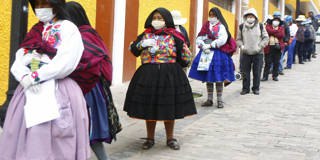During the COVID-19 pandemic, many Latin American countries created emergency relief programs that formally recognized workers in the informal economy. So, why has much of the region’s newly eligible labor force still been unable to access benefits?
BRASÍLIA – During the COVID-19 pandemic, Latin American governments took the unprecedented step of including informal workers in emergency relief legislation. Informal workers comprise a significant share of Latin American countries’ economically active population, ranging from 23.9% in Uruguay to 82.6% in Honduras, and they have been among those hardest hit by the pandemic. Their inclusion in the pandemic response thus seemed like a harbinger of progress. But, on closer inspection, the move highlighted the unintended consequences of failing to consult with those most affected by legislation before it is enacted.

BRASÍLIA – During the COVID-19 pandemic, Latin American governments took the unprecedented step of including informal workers in emergency relief legislation. Informal workers comprise a significant share of Latin American countries’ economically active population, ranging from 23.9% in Uruguay to 82.6% in Honduras, and they have been among those hardest hit by the pandemic. Their inclusion in the pandemic response thus seemed like a harbinger of progress. But, on closer inspection, the move highlighted the unintended consequences of failing to consult with those most affected by legislation before it is enacted.